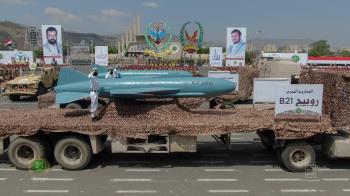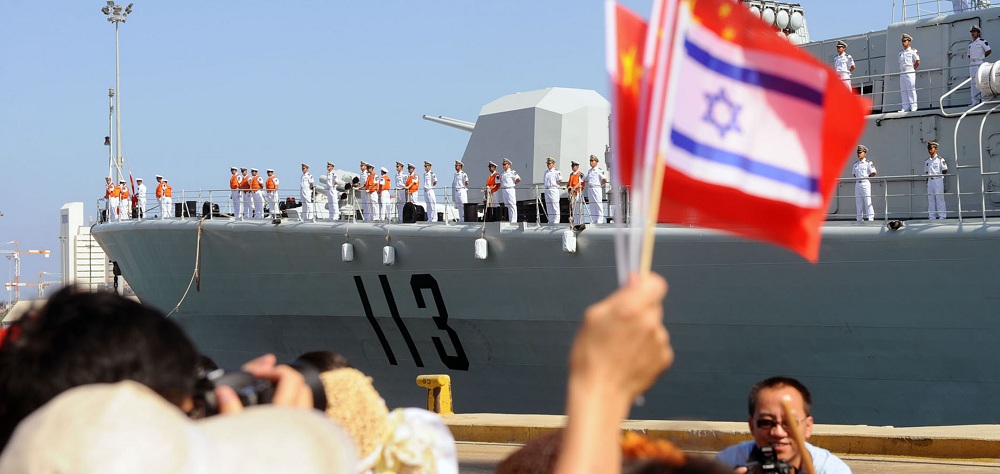Alwaght- "The honeymoon in relations between Israel and China is over." These are the words of the retired Brigadier General Assaf Orion who is the head of China desk at the Israeli National Security Studies (INSS) at the opening of the new policy center on August 4 with the presence of the Chinese ambassador Cai Run. The ex-Israeli official was addressing the division occurring in the Chinese-Israeli relations.
According to the Israeli researcher, since 2018 that their trade reached its climactic point, the two sides saw their economic ties going down, and some indications show that a new era as started in their relations.
Results of polls conducted by Pew Research Center show that around half of the Israelis, 48 percent, said that they have a positive view of the relationship with China. But this percentage is a downturn from the 60 percent of the past.
American pressures have played a very effective role in the downward trend of relations between Beijing and Tel Aviv in the last two years. In 2017, Washington, seeing China's massive infrastructure investments across Africa, as well as the strengthening of Beijing's footprint in European and West Asian countries, perceived the danger much more palpably than before.
In that year, China became the largest Asian trade partner of Israel and its second biggest global trade partner. 42 percent of the total Israeli exports to Asia go to China. So, China unseated the US in the Israeli foreign trade. Additionally, before the coronavirus outbreak, Israeli had flights to five Chinese cities. In 2019, 156,000 Chinese tourists visited the Israel, the largest in that year. Moreover, earlier this year, the Israeli government reduced its US dollar and Euro holdings and added China's currency yuan to its basket of foreign currency reserves.
But with the activation of Chinese companies' role in the Israeli railway and port sectors, as part of China's Belt and Road Initiative, the alarm was sounded for the White House. During this time, a 'comprehensive innovation partnership' agreement was signed between Beijing and Tel Aviv, and as a result, the port of Haifa in the Mediterranean was handed over to Shanghai International Port Group, a Chinese state-run investor, in 2015, arousing the ire of Washington.
In the US, this agreement was read as a factor expanding Chinese foothold in Eastern Mediterranean and a threat to the American naval presence. One of the Washington's key issues of concern was the regular presence of the US Sixth Fleet in Haifa port, and if the Israelis have not changed their facilitating approach to the growing Chinese influence, it could be effected. Well aware that the dependence on the US is central in the mindset of the Israeli political and military elites and Tel Aviv connot continue life with the American support, the White House began to put strains on the Israeli cabinet to cut down its cooperation with China. As a result of these pressures, Israeli politicians reluctantly had to adopt an investment screening mechanism, which led to a rapid reduction in partnership with China.
In October 2019, Israel formed an advisory committee to "examine the national security aspects" of foreign investments, chaired by Shira Greenberg, its chief treasury economist. Although Chinese investments were not canceled altogether, new project launches were delayed.
Israeli export companies active in trade with China are around 480. In the past six years, their number dropped 15 percent, figures show. Further figures talk about drop also in the Israeli exports to China between 2019 and 2020. According to the Israeli Export Institute, their trade volume was $15 billion in 2020. This increases to $18 billion if Hong Kong trade with Israel is added.
In April, when Tel Aviv turned down an offer by a group of Israeli and Chinese companies to build a light rail project, the companies complained about "illegal" pressure from the US as the reason for the rejection.
Also under American pressures, the Israelis canceled deals for delivery of arms and transfer of dual-use technology with China.
Meanwhile, the Americans suggested an alternative strategy in show of continuation of commitment to the Israeli interests. The strategy, resting on the start of normalization with the Arab countries, covers the US, India, the UAE and Israel in Indo-Pacific region to distance countries from Chinese influence.
The UAE's $2 billion investment on farms across India, assisted by Israeli-provided technologies, is part of this strategy announced over the past months.
However, Beijing has many choices in West Asia for expanding its influence and does not need to waste time bargaining with Tel Aviv for average privileges that are under constant American scrutiny. In reaction, China is likely to return to its former diplomatic stances like support to Palestine and its more traditional partners like Iran and Syria.



























